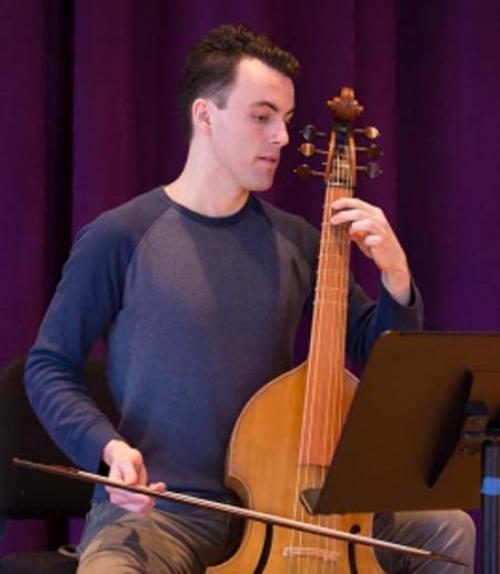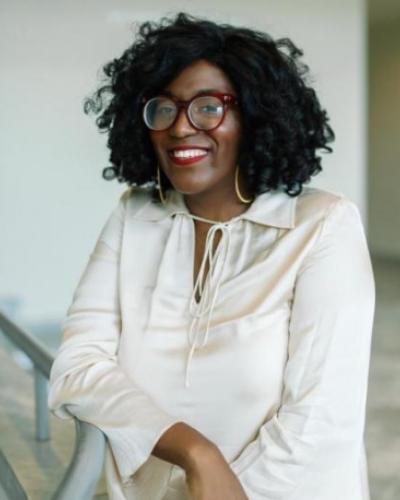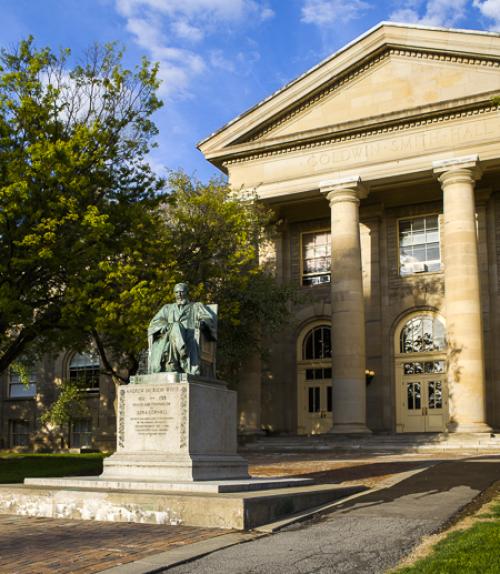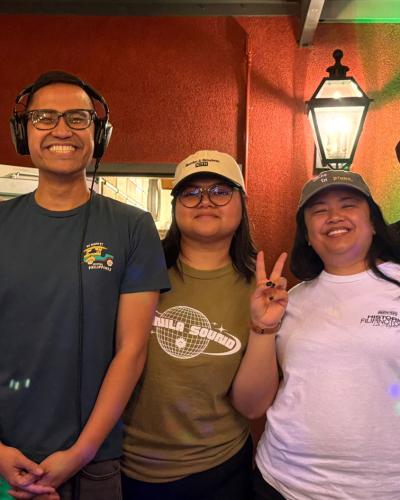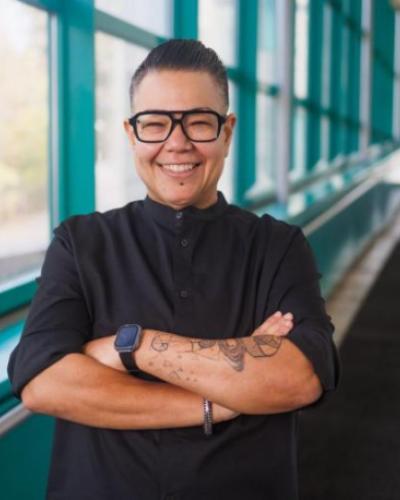 Department Homepage
The College of Arts & Sciences
Department Homepage
The College of Arts & Sciences
Students produce rarely staged 1606 opera 'Eumelio'
Resurrecting a 17th-century Italian opera whose sole musical source was incompletely notated was a challenge musicologist Neal Zaslaw and a group of students were happy to accept.What started as a spring 2015 seminar project was unveiled March 19-20 as an opera complete with Baroque instruments, Arcadian shepherds, hellish demons and classical statuary in the auditorium of Klarman Hall.
